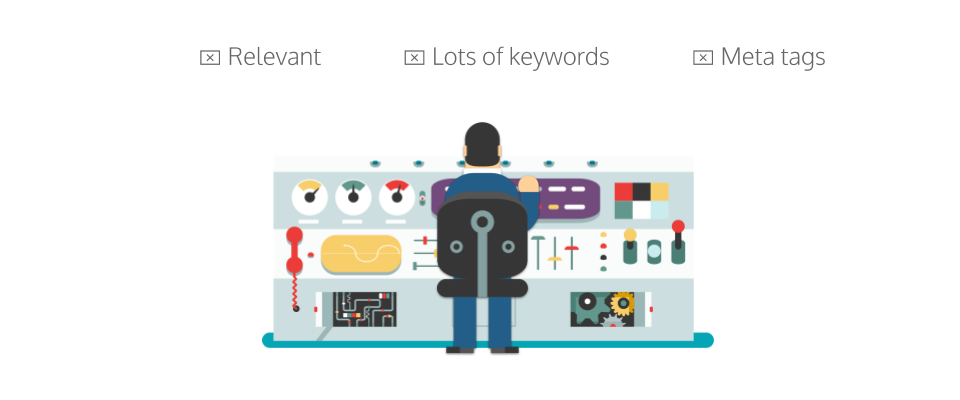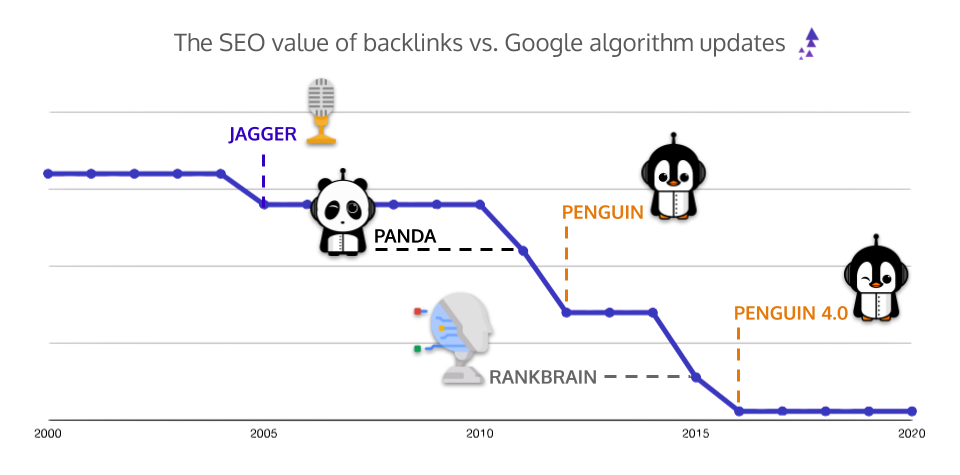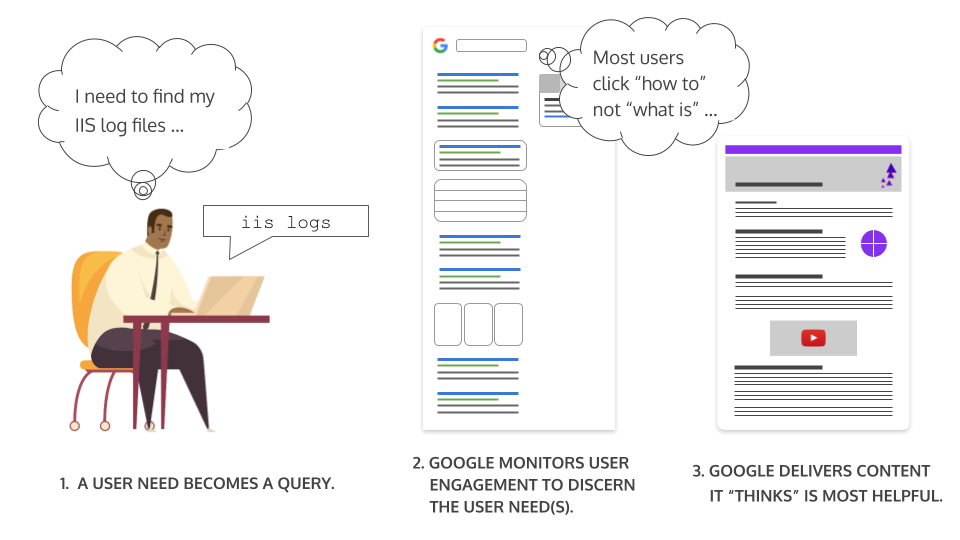Link Building is Dead: 3 Reasons to Stop Wasting SEO Resources On It
Many agencies still recommend link-building as a tactic to raise a website’s standing in SERPs, but many digital marketers are starting to question if this strategy is still effective.
While the quantity and quality of inbound links still play some part in the overall ranking of a page or a site, it is also true that Google’s advanced algorithms use a multitude of unknown factors to identify the best content.
And because Google has gotten smarter about identifying the best content, the value of backlinks has changed: All backlinks are not created equal, nor are they equally impactful for SEO. Consequently, investing time and resources into backlinks isn’t worth the effort for the following reasons:
- The importance of links has been on the decline for years.
- Links were never an ideal ranking factor to begin with.
- The hype around link-building is misleading.
How Link-Building Got Started
Twenty-five years ago—before Google’s AI-infused machine learning algorithm was the norm—search engine ranking factors were based on relevancy, keyword density, and meta tags. Search engines worked with what they had, and that was all there was.

Then, in the late 1990s, Google introduced its PageRank algorithm, which relied heavily on incoming links to help identify “good” content. Google assumed that a lot of backlinks from other websites indicated quality. Thus, a page with a lot of inbound links could rise through organic rankings.
When the black hat SEOs discovered this, “link building” began. Because quality didn’t matter, some SEOs started creating and purchasing lots of low-quality links. “Link farms” (websites set up specifically for the purpose of creating these meaningless backlinks) were established all over the web, and they worked—elevating bad content and websites to the top of SERPs.
So Google started cracking down. It began programming the algorithm to recognize and prioritize high-quality backlinks, and also give more weight to hundreds of OTHER ranking factors to determine which content is the best (which has the natural effect of de-emphasizing backlinks).
If an SEO strategy today includes trying to quickly acquire a lot of inbound links, avoid that at all costs. Here are three reasons why link building is not a quick-win strategy.
1. The Importance Of Links Has Been On The Decline For Years
When it became apparent that black-hat SEO tactics were influencing rankings and surfacing less-than-great websites, Google began rolling out a series of algorithm updates meant to put an end to the practice.
- In 2005, the Jagger update negatively affected websites buying sitewide links, engaging in reciprocal link exchanges with irrelevant websites, and acquiring links from link farms.
- In 2011, a major update, called Panda, heavily hit “article marketing,” in which SEO practitioners used to publish low-quality articles on sites like ezinearticles.com as a form of link building.
- In 2012, Google rolled out Penguin, a “webspam algorithm update,” which specifically targeted link spam and manipulative link building practices.
- In 2015, Google introduced RankBrain, a machine learning algorithm that helps process search results. RankBrain emphasizes different ranking factors (including backlinks) per industry/niche/query as they seem important. Thus, backlinks in general will be more important for some verticals than others. For example, for a search involving a news topic, RankBrain will emphasize “timeliness” and de-emphasize “backlinks,” because good, fresh, news content hasn’t had time to earn backlinks.
- In 2016, Penguin 4.0 was Google’s response to the increasing practice of manipulating search results (and rankings) through black hat link building techniques. With this update, Penguin became a part of Google’s core algorithm. Webmasters were charged with continually monitoring their backlinks, and removing or disavowing links deemed low-quality in order to avoid penalties or a de-indexing from Google.

So, while inbound links are still a part of the overall equation, their importance has been on the decline for years. There are just too many other factors that are of equal or greater importance.
2. Links Were Never An Ideal Ranking Factor
There never was—and probably never will be—a single, ideal ranking factor. But when Google started using backlinks to judge content quality, it was one of the best options available—and it worked! Google won huge leads over Yahoo! and Alta Vista by providing better search results in those early days, and using backlinks as a ranking factor had a big hand in that success.
But inbound links were never considered an ideal ranking factor—or even a long-term algorithm solution, because they can be easily manipulated. Thus, they don’t necessarily indicate a true measure of content quality.
Additionally, backlinks don’t measure truly satisfied end users, because the people creating links aren’t the end users. Even a well-intentioned, authentic backlink created by a publisher might not be as relevant or valuable to his audience as he thought it would be.
Google recognized this many years ago and has moved away from emphasizing backlinks for those reasons.
Today, Google has enough of its own data, from its enormous daily traffic volume, to measure user satisfaction directly. It has so much historical data that it doesn’t need to look at links to figure out what users prefer—it looks at its own data to figure out what users find most helpful.

3. The Hype Around Link-Building is Misleading
Today, high-quality, authentic, natural links are still a net positive. They can drive qualified traffic, and they may provide a small, perhaps imperceptible, positive for organic rankings. But these are not the kinds of links that can be purchased.
Today, the only way to create high-quality inbound links is to create high-quality content.
So, why do so many people still recommend link-building for SEO? Why invest time and money in an activity for which the outcome is not predictable, scalable, or repeatable? Claims that link building is valuable for organic SERP rankings are based on hype and may be purposely misleading.
Years ago, when inbound links were an indicator of quality content, many people built businesses around link building. And those people have a vested interest in promoting its supposed value. I still get emails (and you probably get them too) that ask if I’d like to buy some links. The fact is, people want you to buy what they have to sell.

But the best inbound links are earned over time and they should be a proxy for the overall health of your website; that is, how valuable your website is to your marketplace. Websites with high traffic and high-quality content should earn links naturally. If you aren’t earning links naturally, it could be a sign that your site is not the best quality. It may even be an indicator of future traffic declines.
SEO Backlinks: Effort ≠ Impact
There are, essentially, two types of backlink efforts that marketing leaders are often offered: buying cheap links, and “white hat” backlink campaigns that attempt to generate the kind of high-quality backlinks Google responds to.
The quick-fix of spammy backlinks is not only ineffective, but could actually damage a site’s SEO because of Google penalties and manual actions.
More “modern” link building efforts are often offered as an alternative. These services generally network with publishers or content creators to create backlinks to your site, from other higher authority domains. The backlinks may pass Google’s spam tests, but the rates that companies pay for a handful of links that create negligible SEO results are hardly justifiable.
An SEO Strategy that Transcends Algorithms
Google’s algorithms change constantly (they literally update themselves now). The goal will always be to surface the very best content and prevent spammers from gaming the system.
This should not bother a smart marketer whose SEO strategy is built on producing the most-helpful content created for specific user needs. Instead of trying to quickly build inbound links, focus on your goals, and make data-driven decisions based on the metrics that matter most to your business.
And, as always, keep producing SEO content that is better than anything already on the web. Not sure what that process looks like? Our Modern Guide to High-Impact SEO Content will get you started.
What's Next?
Profound Strategy is on a mission to help growth-minded marketers turn SEO back into a source of predictable, reliable, scalable business results.
Start winning in organic search and turn SEO into your most efficient marketing channel. Subscribe to updates and join the 6,000+ marketing executives and founders that are changing the way they do SEO:
And dig deeper with some of our best content, such as The CMO’s Guide to Modern SEO, Technical SEO: A Decision Maker’s Guide, and A Modern Framework for SEO Work that Matters.




